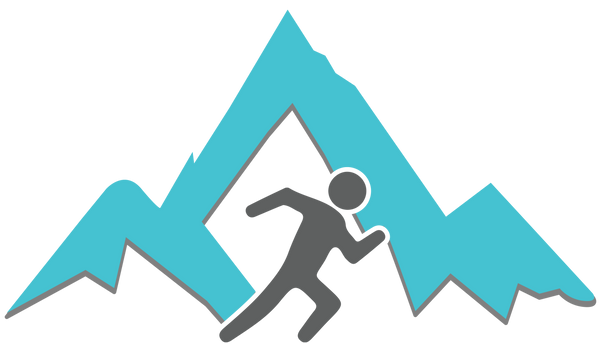
Limbic Friction - Habit Formation & Athletes
<10 Minute Read
There are many goals we could have for our running... Well... okay, maybe there aren't. We can only think of 3 primary goals:
- improve power to run faster
- build endurance to run farther
- master time management to run more often
Some of these goals may appeal to you, and some may not. But either way, the journey to achieve any of these goals is often accompanied by a mental resistance around habit change.
Achieving any of these objectives requires a changes in routine. Afterall, we cannot continue training the same way we always have, and expect different results. But, with changes in habit, come significant mental resistance.
Defining Limbic Friction
A unique way to describe the mental resistance accompanying routine formation or habit change is called “limbic friction." This term is coined by Dr. Andrew Huberman and it is not something you’ll find in traditional psychology.
The term describes the internal resistance, and subtle frustration, that is felt when working to change a habit or routine, even when the desire for the end goal is strong. Anecdotally, many describe this as feeling conflicted - we're always well intentioned with our goals, but our ingrained neural patterns make it challenging to take the first step.
It is important to note that we experience this friction regardless of our desire to achieve an outcome. For example, we may truly desire to spend more time running. And we may genuinely want to build time management habits required. But when we need to cut something else out of life (or wake up at 4:30am), we will experience this mental resistance either way.
Applying Limbic Friction to Athletes:
New Athletes
For individuals new to running or endurance training, limbic friction may arise when attempting to establish a consistent running routine. This seems pretty obvious. The initial phase of starting a new habit can be daunting, leading to initial feelings of frustration and internal resistance.
Considering this friction is the result of trying to dismantle ingrained thought pattern, it can be especially difficult for someone who has had the same routine for years and years. Again, the desire to develop a passion for running may be strong, but overhauling the patterns of the brain is difficult.
Seasoned Athletes
Even experienced athletes will encounter limbic friction, particularly when facing fatigue or overtraining. And this is where it gets interesting.
Limbic friction arises for any change of routine. And if our routine for years has been to run every day, it'll be dang difficult to stop. This is why many feel running is addictive - routines are powerful. And so, limbic friction applies just the same. If running is the fabric of your being, yet you're overtrained, you will experience internal conflict and mental resistance trying to get yourself to stop running and recover fully.
This reluctance for rest can be attributed to the disruption of established neural pathways. But okay, what do we do about it?
Strategies to Overcome Limbic Friction
Of course, the answer is not to avoid change. That’s almost never the answer. So here’s what we’ve got:
Treat the Brain like a Muscle
If you’re training for a marathon, you don’t run 26.2 miles on day one? Right? Because your body cannot handle it. We all know you need to build your muscles, bones, and tendons over time. The brain is no different.
Incorporate new habits gradually to allow your mind to adapt. Whether it's increasing running frequency or embracing rest days, slow progression can mitigate the resistance associated with change. But it will never go away entirely, and that's okay.
Brush Your Teeth With Your Non-Dominant Hand
Yes, you read that correctly.
It's weird but we've been told that this forces the brain to think differently from the moment you wake up. No more mindless routine following, brushing your teeth with the opposite hand forces you to mindfully think about your actions. This is small and silly, but we've experienced this first hand.
Stay Consistent
Not taking action will lead to a reduction in mental strength. Just like we said above, the brain is like a muscle (“use it or lose it”).
We’re not saying to run every day. We’re saying plan a routine, inclusive of rest days or whatever, and stick to it. Establishing consistent routines will reduce the perception of novelty around your new habit, and your routine will get easier, fast.
Mindfulness
Practice mindfulness techniques to acknowledge and accept the discomfort associated with change. You now know that limbic friction exists, and you should expect it. When the mental resistance arises, simply acknowledge it, and understand it’s temporary.
Chat GPT’s Recommendations on Habit Change:
Based on psychological principles of habit formation, consider the following strategies:
Implementation Intentions: Create specific plans detailing when, where, and how you will engage in new behaviors.
Behavioral Cues: Use environmental cues or triggers to prompt desired actions. For example, laying out running gear the night before can facilitate morning workouts.
Chat GPT tried its very best and we commend it for its efforts. If laying out running gear the night before is helpful, then by all means! We’ve even heard of people sleeping in their running shorts. And what we have found to work exceptionally well is setting our coffee pot on a timer. We wake up to the smell of fresh coffee and have never been more motivated to get up and run. And if it’s electrolyte infused, it’s an exceptional pre-run supplement as well. If you need a mental kick in the a*#, this is it.
Conclusion and Recommendations
To sum things up here, limbic friction serves as a reminder of the complex interplay between motivation and habitual behavior in athletic training. By understanding and addressing this psychological hurdle, athletes can pave the way for sustainable progress and enhanced performance. Embrace slow and deliberate changes, cultivate self-awareness, and leverage psychological insights to overcome limbic friction and achieve your training goals.












